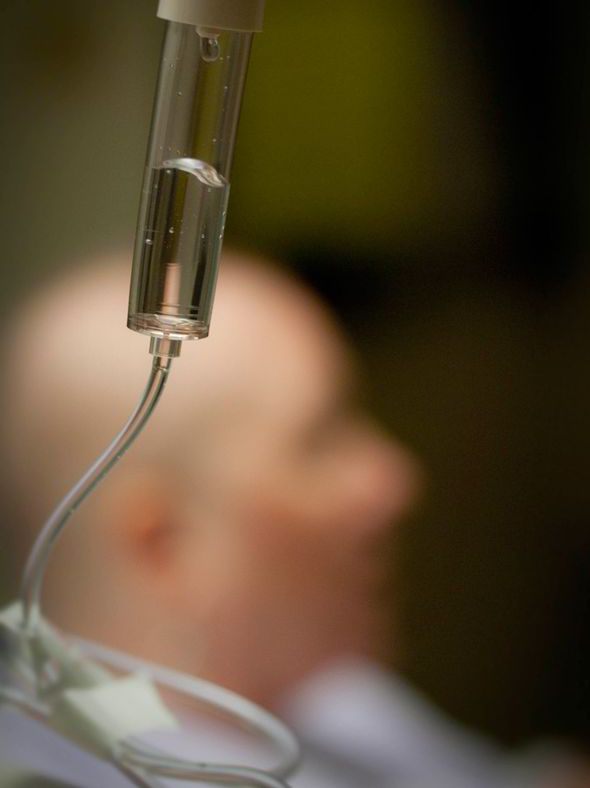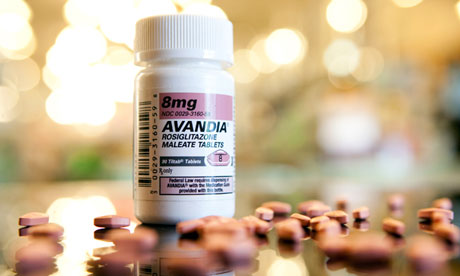Diabetes pill beats cancer...and costs just 2p a day
A DIABETES pill that costs just 2p a day could prevent thousands dying from Britain’s biggest cancer killers every year.
By: Jo Willey in The Express
 Metformin is already taken by millions of diabetes patients
Metformin is already taken by millions of diabetes patients
The drug, already taken by millions of patients to control blood sugar levels, is thought to be capable of starving some cancer cells to death.
New research suggests it can slash the risk of developing liver cancer by an astonishing 78 per cent, breast cancer by a third, pancreatic cancer by 46 per cent and bowel cancer by nearly a quarter.
Together, these are the biggest cancer killers – and among the hardest to treat. They claim the lives of 39,336 people each year – a quarter of all UK cancer deaths.
The discovery raises the possibility that the drug – metformin – could be a potent weapon in the battle to find a cure for cancer. Scientists think the drug could prove to be cancer’s Achilles’ heel.
It works by reducing the amount of glucose – which feeds cancer cells – being produced. It helps cells mop up sugar circulating in the bloodstream, cutting off cancer’s energy supply.
Metformin has been safely used by millions of people with Type 2 diabetes for more than 50 years.
Now, researchers from the Department of Epidemiology and Health Statistics at Shandong University in China, have analysed 37 studies involving more than 1.5 million people.
They found that diabetes patients who took metformin were far less likely to get cancer.
And even if they did get the disease, they were less likely to die from it.
They concluded: “Metformin can reduce the incidence of overall cancer, liver cancer, pancreatic cancer, colorectal cancer and breast cancer as well as the mortality of overall cancer, liver cancer and breast cancer.”
The researchers found no such benefit for men suffering from prostate cancer.
If the Chinese researchers are right the drug could be marketed for cancer treatment far more quickly than a newly discovered drug because it is already prescribed widely without ill-effects.
Previous studies have also shown metformin to be a powerful cancer buster, apparently seeking out an destroying the deadly cells which give birth to tumours and fuel their spread.
Recent studies highlighting the drug’s effects against a variety of tumours have generated considerable excitement among cancer researchers looking for powerful new treatments.
In 2011, scientists discovered it could slash the risk of ovarian cancer by around 40 per cent.
And Cancer Research UK is funding a major five-year study, involving nearly 5,000 British women with breast cancer, to see if the drug can stop the disease returning and boost survival rates.
Other research teams around the world are investigating metformin’s powers against skin, lung and pancreatic cancer – with promising early results.
It works by reducing the amount of glucose – which feeds cancer cells – being produced. It helps cells mop up sugar circulating in the bloodstream, cutting off cancer’s energy supply.
Metformin has been safely used by millions of people with Type 2 diabetes for more than 50 years.
Now, researchers from the Department of Epidemiology and Health Statistics at Shandong University in China, have analysed 37 studies involving more than 1.5 million people.
They found that diabetes patients who took metformin were far less likely to get cancer.
And even if they did get the disease, they were less likely to die from it.
They concluded: “Metformin can reduce the incidence of overall cancer, liver cancer, pancreatic cancer, colorectal cancer and breast cancer as well as the mortality of overall cancer, liver cancer and breast cancer.”
The researchers found no such benefit for men suffering from prostate cancer.
If the Chinese researchers are right the drug could be marketed for cancer treatment far more quickly than a newly discovered drug because it is already prescribed widely without ill-effects.
Previous studies have also shown metformin to be a powerful cancer buster, apparently seeking out an destroying the deadly cells which give birth to tumours and fuel their spread.
Recent studies highlighting the drug’s effects against a variety of tumours have generated considerable excitement among cancer researchers looking for powerful new treatments.
In 2011, scientists discovered it could slash the risk of ovarian cancer by around 40 per cent.
And Cancer Research UK is funding a major five-year study, involving nearly 5,000 British women with breast cancer, to see if the drug can stop the disease returning and boost survival rates.
Other research teams around the world are investigating metformin’s powers against skin, lung and pancreatic cancer – with promising early results.
 New research suggests metformin could be a powerful weapon against cancer
New research suggests metformin could be a powerful weapon against cancer
Dr Martine Bomb, Cancer Research UK’s health information manager, said: “Some evidence analysed in this review shows that metformin may be able to lower diabetic people’s risk of developing and dying from some cancers.
“But other studies show metformin’s effect could be less powerful. Clinical trials are investigating whether this cheap, readily available drug could help save the lives of cancer patients.”
The new research is just the latest to hail this wonder drug to treat conditions other than diabetes.
Last year, research suggested that metformin could help beat the degenerative brain disease Alzheimer’s by triggering the growth of new brain cells.
A recent study at Dundee University showed it also interferes with the formation of toxic “tangles” of protein which clog the brain in Alzheimer’s patients, destroying memory cells.
“But other studies show metformin’s effect could be less powerful. Clinical trials are investigating whether this cheap, readily available drug could help save the lives of cancer patients.”
The new research is just the latest to hail this wonder drug to treat conditions other than diabetes.
Last year, research suggested that metformin could help beat the degenerative brain disease Alzheimer’s by triggering the growth of new brain cells.
A recent study at Dundee University showed it also interferes with the formation of toxic “tangles” of protein which clog the brain in Alzheimer’s patients, destroying memory cells.
